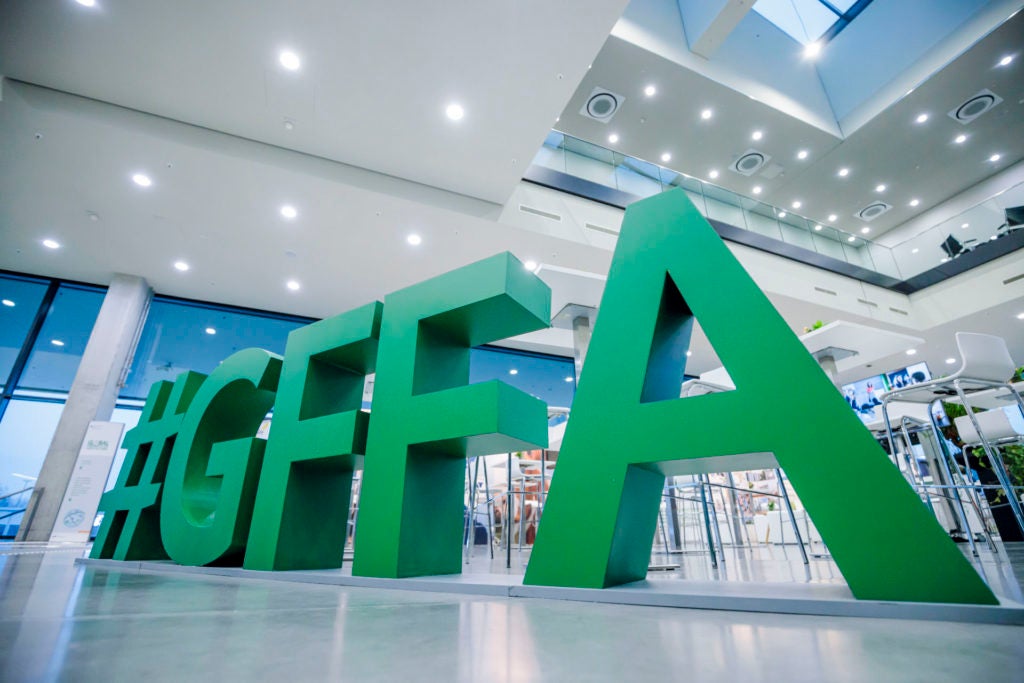By Karly Kelso

Global Forum for Food and Agriculture (GFFA) in Berlin, January 20, 2023 (BMEL/Photothek)
Food systems transformation is increasingly getting traction globally, making the case that we can’t meet our Paris climate agreements without food at and on the table. That was certainly true at the recently held Global Forum for Food and Agriculture (GFFA) in Berlin, known as the largest informal gathering of Agriculture Ministers.
This year’s theme, “Food Systems Transformation: A Worldwide Response to Multiple Crises,” focused on conversations about how global food security may be achieved in the face of multiple crises, including Russia’s war against Ukraine. Despite the heavy topic, a sense of energy and ambition among the attendees was evident as this event marked the first GFFA held in person since 2020, when the COVID pandemic forced global lockdowns.
The conference has historically focused on agriculture production policies, but this year was different. Conversations took a more holistic view of food systems, and our EDF team was among the voices calling for attention towards freshwater management and blue foods. Both are central to food systems but are often left out of these dialogues despite their significant contribution to the Sustainable Development Goals and global food and nutrition security. At GFFA, our team highlighted how EDF is advancing international recognition of these two critical aspects of food systems.
Our team demonstrated the innovative tool, OpenET, that provides access to satellite data on water consumption on agricultural lands across 17 states in the American west. This tool supports climate-friendly food systems by enabling producers to better manage the dwindling water supplies. We highlighted the Aquatic Blue Food Coalition at the Innovation Forum and joined the expert panel: Solving the Great Food Puzzle: 20 levers to scale national level action, where we spoke about how we are catalyzing the inclusion of blue foods into national level actions for food transformation.
While we have a long way to go, this meeting signals the growing efforts to move towards adopting a food systems approach to global food and nutrition insecurity. The final communique from the Ministers’ meeting reflects this commitment and sets the following ambitious goals:
- The right to adequate food must be realized. It is high time to recognize it on the 2030 agenda.
- In particular, the young generation, women and smallholders must be supported.
- Multilateralism must be promoted in the face of multiple crises: hunger, energy and climate crisis, and extinction of species.
- The global community must stand united.
- Transformation towards resilient and sustainable food systems must be supported and sped up.
As we close out the first food conference of 2023, I’m hopeful as these global dialogues are increasingly focused on the importance of holistic approaches to food and nutrition that promote sustainable, inclusive, efficient, and resilient food systems transformation. On the Climate Resilient Food Systems team at EDF, we will be looking to carry these themes forward throughout 2023, including at the UN Water Conference, 2023 Stocktaking Moment, UNFCCC COP28, and more. But most importantly, we will look forward to working with and supporting partners and communities on the ground who are transforming food systems to create a vital earth for everyone.
Karly Kelso is director of Climate Resilient Food Systems at EDF.









